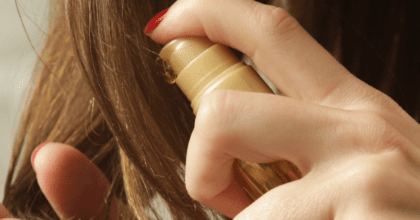UK coffee sales full of beans
While the past year may have seen many household economies made, it seems there are some things in life that we Brits are simply not willing to cut back on. As new premium instant coffee ranges are launched this week, research from Mintel finds sales of coffee on a high, as the nation trades up to a posher cuppa.
With rising prices and the economic downturn at play over the past few years, the in-home coffee market has weathered the storm well. Between 2005 and 2009 the UK market for in-home coffee grew by a steaming 17% in value. Although some of this growth is attributed to the hike in raw coffee and production costs, trading up has been a key feature of the market. And things are continuing to look upbeat, with sales of coffee set to steam ahead. Valued at £782 million in 2009, the market for coffee is forecast to grow by as much as 25% by 2014, when the market will hit the £976 million mark.
Ben Perkins, Head of Food and Drink research at Mintel said:
” economic turbulence in the UK has contributed to a shift in the way that consumers drink their coffee, which has largely been to the benefit of the in-home coffee market. As coffee shops have felt the effects of consumer belt tightening, the in-home market has witnessed a good deal of trading up, as consumers endeavour to replicate the coffee shop experience at an in-home price. While once Brits were happy to settle with a bog standard cup of instant, today the traditional cup of coffee has become increasingly sophisticated as roast, ground, instant premium and super-premium are being sought after more frequently by core users than in previous years. “
However, one area the industry is particularly concerned about is the lack of uptake amongst younger consumers. Although the over-55s represent the biggest coffee users, and are themselves a powerful buying group, the market stands to lose a considerable proportion of drinkers if younger consumers do not develop a taste for the product going forward. The age of 35 appears to be a major turning point for coffee drinking, with coffee consumption rising considerably among 35 to 44 year-olds and steadily thereafter. Just 39% of 25 to 34 year olds and 17% of 16 to 24 year olds drink coffee which they make at work, compared to as many as half (50%) of those aged 35 to 44. Meanwhile, 33% of those aged 16 to 24 and 57% of those aged 25 to 34 drink coffee at home, this compares to three quarters (75%) of those aged 35 to 44 years old.
“The issue with the younger end of the market is that these consumers don’t drink instant coffee, which is the largest part of the market, so the big brands need to tap into this age group. Indeed, long term growth in the market will very much depend upon how coffee brands can make coffee drinking appealing to a younger audience. “Ben adds.
Good old ” instant”(£626 million) remains the nation’s favourite coffee, accounting for 80% of value sales in 2009. Total sales of instant grew by 12% between 2005 and 2009. Meanwhile, sales of roast or ground coffee (£149 million) account for 19% of sales. Sales of this variety grew by an energising 49% over the same 5 year period. Worth just £8 million in 2009, ready-to-drink coffee accounts for the remaining 1% of the market.
The premium freeze-dried, super-premium and speciality sectors have been responsible for driving growth within the instant sector, as shoppers of these upmarket varieties are less likely to be bulk-buying promotions than the regular category. Within the sector more and more consumers are trading up, switching to premium formats such as roast and ground coffee. Valued at £201 million in 2009, sales of premium (freeze dried) coffee rose 44% between 2005 and 2009, accounting for as much as 36% of instant value sales. Meanwhile, sales of regular granules have been in decline for some time. Seen as the less innovative and the value option in the market, regular granules fell a massive 36% over the same 5 year period, to just £140 million in 2009. Today, they account for just a quarter (25%) of instant coffee market sales.
With a 14% value share, sales of speciality coffee grew by 17%, while super premium (accounting for a 13% share) grew by 18%. Once all the rage with the nation’s health freaks – decaffeinated coffee has witnessed an 8% decline in the past year, accounting for 11% (£62 million) of instant sales in 2009. Finally, with a share of just 1%, powder is valued at just £6 million.
Finally, looking at coffee sales as a whole, Fairtrade coffee was worth £41 million in 2009, accounting for around 5% of total coffee sales. Fairtrade is becoming the norm in the coffee market as more and more of the major coffee and coffee shop brands switch their supply to Fairtrade sources.
“With competition for consumer spend being tighter than ever before, the premium attached to ethical coffee allows the consumer to more easily justify spending the extra money because it is a purchase they can feel good about. Indeed, a good deal of innovation and launch activity over the past two years has been focused on ethics. “Ben concludes.
-
Mintel StoreGet smart fast with our exclusive market research reports, delivering the latest data, innovation, trends and strategic recommendations....View reports
-
Mintel LeapMintel Leap is a revolutionary new AI-powered platform that will transform your research process....Book a demo







































